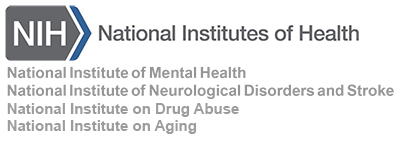Neurocognitive impairment in HIV-infected individuals with previous syphilis.
| Title | Neurocognitive impairment in HIV-infected individuals with previous syphilis. |
| Publication Type | Journal Article |
| Year of Publication | 2013 |
| Authors | Marra, CM, Deutsch, R, Collier, AC, Morgello, S, Letendre, S, Clifford, DB, Gelman, B, McArthur, JC, McCutchan, JA, Simpson, DM, Duarte, NA, Heaton, RK, Grant, I |
| Journal | Int J STD AIDS |
| Volume | 24 |
| Issue | 5 |
| Pagination | 351-5 |
| Date Published | 2013 May |
| ISSN | 1758-1052 |
| Keywords | Adult, Case-Control Studies, CHARTER, Cognition Disorders, Female, Fluorescent Treponemal Antibody-Absorption Test, HIV Infections, Humans, Internal, Male, Middle Aged, Neuropsychological Tests, Neurosyphilis, Prospective Studies, Syphilis, Syphilis Serodiagnosis, Treponema pallidum |
| Abstract | Cognitive impairment is common in HIV-infected individuals, as is syphilis. Treponema pallidum, the bacterium that causes syphilis, invades the central nervous system early in disease. We hypothesized that HIV-infected patients with a history of syphilis or neurosyphilis would have more cognitive impairment than HIV-infected individuals without these infections. Eighty-two of 1574 enrollees in CHARTER, a prospective, observational study, had reactive serum rapid plasma reagin (RPR) tests. They were matched to 84 controls with non-reactive RPR by age, gender, ethnicity and HIV risk factor. Participants underwent comprehensive neuropsychological (NP) evaluations. RPR results were confirmed and serum fluorescent treponemal antibody absorption (FTA-ABS) test reactivity determined at a central laboratory. Sera from 101 of 166 participants were FTA-ABS reactive, indicating past or current syphilis. Among the 136 individuals without confounding conditions, compared with patients who had never had syphilis, those with prior syphilis had a greater number of impaired NP test domains (1.90 SD [1.77] versus 1.25 [1.52], P = 0.03), a higher global deficit score (0.47 [0.46] versus 0.31 [0.33], P = 0.03), and more were impaired in the NP learning domain (36 [42.9%] of 84 versus 13 [25.0%] of 52, P = 0.04). These effects of prior syphilis remained after controlling for education and premorbid intelligence. |
| DOI | 10.1177/0956462412472827 |
| Alternate Journal | Int J STD AIDS |
| PubMed ID | 23970701 |
| PubMed Central ID | PMC4560461 |
| Grant List | K24 MH097673 / MH / NIMH NIH HHS / United States R01 NS34235 / NS / NINDS NIH HHS / United States HHSN271201000036C / MH / NIMH NIH HHS / United States R01 NS034235 / NS / NINDS NIH HHS / United States P30 MH062512 / MH / NIMH NIH HHS / United States N01 MH022005 / MH / NIMH NIH HHS / United States |

